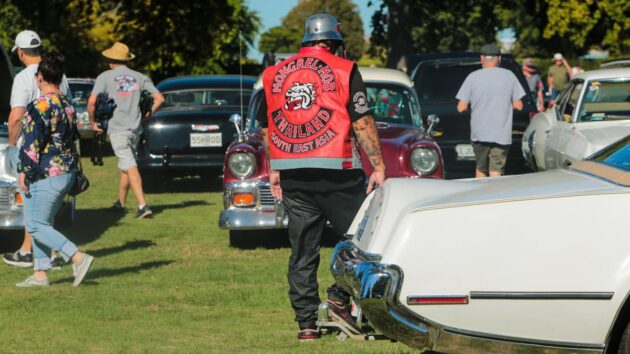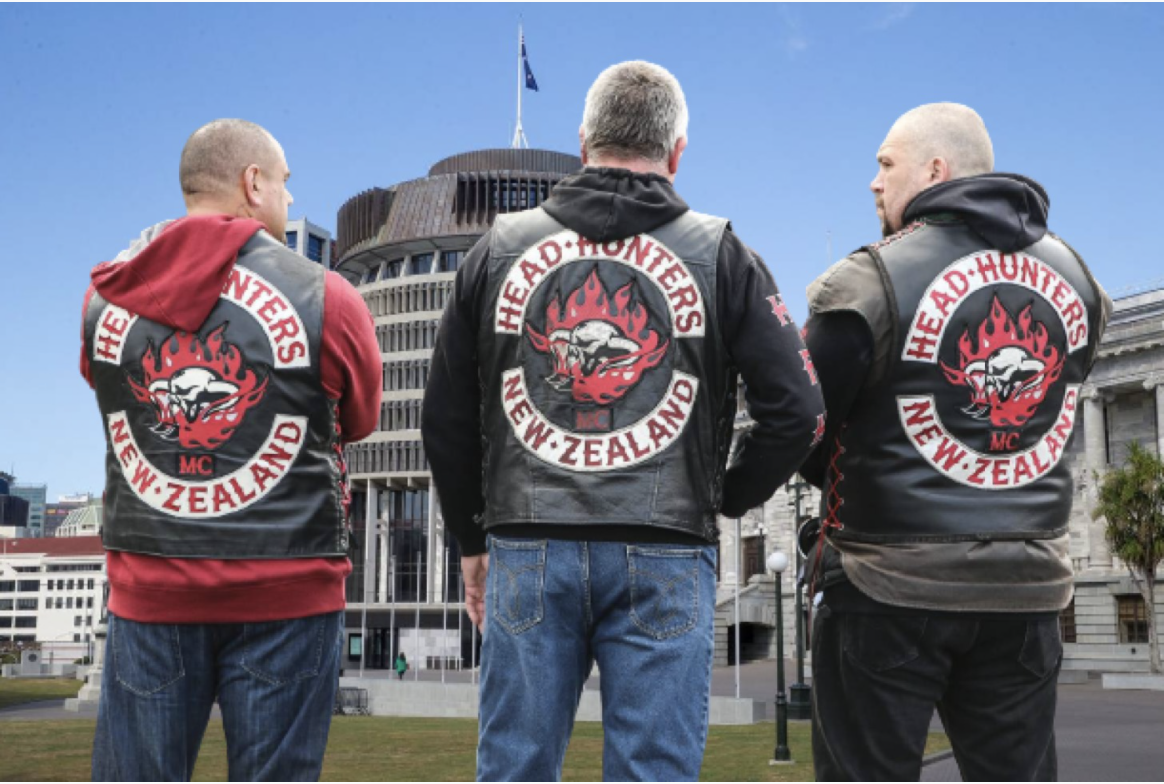What happened to Stuart Nash’s 2018 promise to prioritise disrupting gangs and organised crime? Instead, under his watch, the opposite has happened. Either the government failed to prioritise gangs or their strategy was another dismal failure.
A recent surge in gang membership means New Zealand is not as safe as it used to be and is getting less so with burgeoning gang numbers.
Gangs have been actively recruiting members in prison and among low socio-economic communities.
“At least 900 people joined a gang in 2020, an increase of 13 per cent on the year before, according to police figures. In Hawke’s Bay alone, the birthplace of the Mongrel Mob, police have recorded a 58 per cent increase in recorded gang membership last year.
Experts and gang members have told Stuff the influx has been made up mostly of younger men, and their arrival has heralded a more aggressive gang culture.”
These young men are often products of financially struggling, dysfunctional families.
“These young people are often raised without the presence of their fathers or other positive male role models. So, their view of gangs are predominantly shaped by the mass media, marketing and exaggerated glory by their peers.”
Hawkes Bay is home to 22 chapters of the Mongrel Mob and receives visitors from Australia, the Pacific, Europe and America. A patched “Mongrel Mob Thailand” gang member was spotted in Hastings recently.

“Mongrel Mob member Harry Tam said the evolution of gangs had been shaped by wider socio-economic pressures, particularly the growth of casual work, and lower wages and longer hours that made work less attractive to young people.
“There is little incentive for people to take up unskilled labour and their opportunities to take up higher education or training is limited because they are unlikely to get financial support from their large impoverished whanau, thus their ‘legitimate channels to success’ is limited,” he said in an interview.”
Stuff
Violence and deaths result from gangs clashing over territory, spilling over into the public arena. Gang leaders aren’t happy about it either, suggesting government funding to reduce tensions among rival gangs and help members into jobs.
Addressing the root problem of gang membership is commendable, but it has become urgent to protect the public from a government using the justice system to implement Corrections Minister Kelvin Davis’s “soft on crime” approach.
What are political parties promising to do about public safety?
In September 2018 Stuart Nash announced 500 extra police to target organised crime saying “gangs and disruption of organised crime” was a priority.
But Labour initially promised 1,800 extra police over three years and that number dwindled to 500 with the balance of the 1,800 likely to be provided in 2023.
“In 2018, 36% of all prisoners and 70% of Maori prisoners had gang connections. The majority of gang members in prison were there for drugs, violence or sexual violation. Often the most publicly visible form of violence by gang members is gang clashes, which became common during the 1970s.”
Government Website Te Ara
Under Nash the number of prisoners who were gang members or gang affiliated rose.
“The Mongrel Mob, Tribesmen and Bloods are all up by at least 60 percent, while Head Hunters is up 150 percent and the Killer Beez has increased 126 percent.
Neil Beales from Corrections says that’s causing trouble.
“We’re seeing more violence. We’re seeing more violence perpetrated by gangs, particularly in these younger gangs that are coming through,” he told Newshub.
On the outside, gang numbers are ballooning too, nearly doubling in five years. The National Gang List now covers 27 groups.”
Newshub
Under this government gang membership has exploded.
What are other political parties promising?
ACT takes a two-fold approach to gang activities. They would outlaw gun ownership by registered gang members or their affiliates and amend the Criminal Proceeds Act 2009 to allow for the seizure of guns and assets from gang members or affiliates involved in illegal gang operations like drug manufacturing or money laundering.
ACT’s Firearms Law Reform spokesperson Nicole McKee said:
“The Government must take the recent surge in gang violence seriously and should start by stripping gang members of firearms licences.
Over the past few years, the number of gang members has increased by a third, and there’s been a 54 percent increase in the number of gang members being charged with firearms offences.
ACT can now reveal that a handful of gang members on the National Gang List hold a current firearms licence.
“Given the recent escalation in gang-related gun violence which puts frontline Police and our communities at risk of serious harm, that’s unacceptable.”
ACT Website
Prior to the last election the National Party released changes they expect will make inroads into destroying gangs.
“Our policy is simple: Victims should get justice and criminals should be held accountable for the harm they cause, while also being rehabilitated into contributing members of our society,” [Judith] Collins said.”
RNZ
- Give police greater powers to search gang members;
- Introduce tougher sentences for gang related crime;
- Ban gang insignia in public places;
- Introduce an “aggravating factor” into the Sentencing Act to consider membership or association with gangs;
- Change the onus of proof on gang related income so that gang members have to prove a legitimate source of income;
- Support the police to disrupt and halt the operation of gangs.
- Amend the Arms Law for another government agency to administer the law, not the police;
- Expand mental health facilities for the Independent Police Conduct Authority; and
- Deploy more police in rural areas.
Please share this article so that others can discover The BFD

